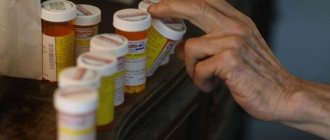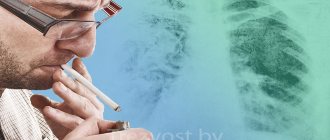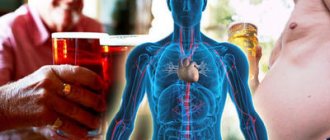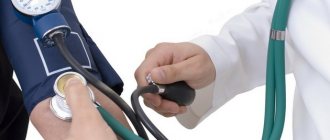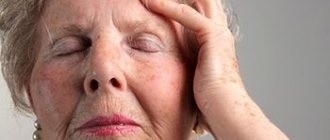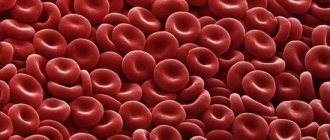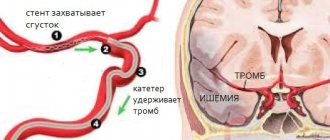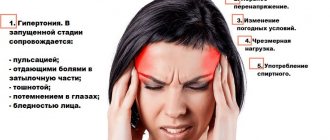Nausea, headache, dizziness are symptoms of many diseases. Doctors at the Yusupov Hospital determine their cause using modern diagnostic methods. A headache is any feeling of discomfort that is localized in the head area. To examine patients, they use the latest equipment from leading companies in the USA and European countries. The use of high-quality reagents and new generation equipment, highly qualified laboratory technicians allow us to obtain accurate results of analyzes of all biological fluids of the body.
For the treatment of patients with headaches, nausea, and eye pain, the Yusupov Hospital has created all the conditions:
- chambers of European comfort level;
- attentive attitude of the staff to the wishes of the patient;
- dietary food that meets the requirements of home cooking;
- use of the most effective drugs registered in the Russian Federation.
Thanks to scientific research conducted in the hospital’s clinics, patients have the opportunity, with their consent, to receive medications that have not yet been introduced into the practice of other medical institutions. Candidates and doctors of medical sciences, leading experts in the field of headache treatment, take part in the treatment process.
Causes of headache and nausea
Temple headaches and nausea can occur for many reasons. There are the following main types of headaches:
- tension headache;
- headache caused by increased or decreased intracranial pressure;
- headache caused by infections;
- post-traumatic headache;
- headache with long-term use of medications.
Headache, nausea, weakness can occur under the influence of stress. Headache, which is a consequence of anxiety, depression of various types, developing under the influence of everyday and work troubles, is quite common among patients at the Yusupov Hospital. It develops due to excessive tension in the muscles attached to the skull.
This disease affects people aged 25 years and older. Typically, the intensity of the disease remains at the same level and does not increase with physical activity. Pain sensations are concentrated in the temporal, occipital or frontal areas. The pain is either compressive in nature without side syndromes. Patients often come to the doctor complaining of a feeling of heaviness or pressure. They say that it’s as if their head is being pulled down by a helmet.
In the majority of patients examined by doctors at the neurology clinic, sensitivity of the muscles of the head and neck is detected. Attacks of headaches caused by tension can last up to several days. With constant stress, the patient becomes chronic. The cause of the transition of acute headaches to the chronic form of the disease is repeated stress, pathology of the temporomandibular joint and cervical spine, and constant use of large doses of caffeine and analgesics.
Migraines are often the cause of severe headaches and nausea. Patients experience periodically recurring attacks of intense, pulsating headaches that last up to three days. Usually, unpleasant sensations appear in one half of the head, mainly in the forehead, eyes or one of the temples. Migraine headaches are aggravated by physical activity. It may be accompanied by nausea, vomiting, drowsiness and lethargy. Patients cannot tolerate bright lights and loud sounds.
Young women are most often affected by migraines. This is facilitated by the rich hormonal background of the body, characteristic of the age of 25-30 years. An attack is the result of an increase in functional activity in specific centers of the brain.
Some foods can trigger an attack of headache, nausea, or dizziness during a migraine:
- cheeses;
- coffee, cocoa, chocolate;
- vinegar, marinade, mustard;
- ketchup, mayonnaise;
- pork, smoked meat, some types of fish;
- spinach, beans, soy, green onions, celery.
Less commonly, headache, nausea, dizziness, and weakness occur after eating citrus fruits, plums, pineapples, avocados, and nuts. The classic “provocateurs” of migraine attacks are alcoholic drinks: red wine, champagne, brandy, cognac, beer and liqueur and beer.
What to do if you have a severe headache and nausea? A few tips can help reduce the frequency of migraine attacks:
- you should reduce the consumption of foods and drinks that provoke attacks;
- avoid long breaks in meals;
- sleep at least 8 hours a day;
- avoid stressful loads;
- quit smoking;
- increase physical activity, especially swimming;
- spend more time in the fresh air;
- avoid long trips by car, bus, boat;
- Do not stay in a room with strong unpleasant odors.
One of the most common causes of symptomatic headaches is cerebrovascular disease. In patients with arterial hypertension (high blood pressure), the pain is usually localized in the back of the head and often occurs in the early morning. Typically, the cause of a headache is a sharp and (or) significant increase in blood pressure, to which the human vascular system simply does not have time to adapt.
Headache associated with increased intracranial pressure may be an early sign of a brain tumor. It intensifies with sneezing, coughing, tilting the head, wakes people up at night, and is often accompanied by vomiting without previous nausea and transient episodes of visual impairment.
Nausea, dizziness, and headache often occur due to cervical osteochondrosis or other pathology of the cervical spine. The pain is usually localized in the cervical-occipital region, often spreading to the forehead and temple, shoulder and arm. Headache of moderate intensity, aggravated by moving the head, staying in an uncomfortable position for a long time, or pressing on the cervical-occipital muscles. Mobility of the cervical spine is limited.
Post-traumatic headaches can persist for several months after a traumatic brain injury. Usually it is diffuse and dull. The pain intensifies with physical activity and is accompanied by the following symptoms:
- decreased attention and memory;
- various emotional disorders (tearfulness, low mood);
- dizziness;
- increased fatigue;
- sleep disturbance.
In male patients, short-term pain that occurs during physical effort is not based on a disease. Close to this category is orgasmic pain - a headache that occurs in men during sexual intercourse and lasts several minutes. If intense pain occurs during intimacy and persists for several hours, you should consult a doctor at the Yusupov Hospital.
How coronavirus affects the human brain
Scientists around the world, based on the results of MRI diagnostics of patients with coronavirus and data from pathological studies of sick patients who died from COVID-19, conclude that Covid significantly affects the human brain.
How the new type of coronavirus infects cells in the brain and spinal cord has not yet been fully studied. But it has already been proven that the SARS-CoV-2 penetrates host cells through the interaction of its own S protein with the human ACE2 . Thus, on the cells of the terminal nerve located next to the olfactory epithelium of the nose, there are a large number of ACE2 receptors.
Presumably, the SARS-CoV-2 virus enters the brain using terminal nerve cells.
Scientists conducted studies directly on brain cells and came to the conclusion that neurons and cells of the brain and spinal cord - astrocytes - are also susceptible to infection through the mechanism of coronavirus binding to ACE2 receptors. This means that virus particles penetrate into brain cells and cause disruption of its functioning.
traces of viral proteins were found in the brain tissue of infected patients . Thus, coronavirus, entering brain cells, leads to inflammation of brain tissue and neuronal degeneration (death of neurons and loss of connections between them).
Important! Information from the article cannot be used for self-diagnosis and self-medication! Only a doctor can prescribe the necessary examinations, establish a diagnosis and draw up a treatment plan during a consultation!
There is an assumption that the SARS-CoV-2 virus can enter the brain through blood vessels. Researchers have found that Covid affects the blood vessels of the brain by detecting virus particles in the walls of blood vessels. Scientists have determined how Covid affects blood vessels by studying post-mortem human brain tissue.
It turned out that the ACE2 protein, which the coronavirus binds to, is widely represented in all blood vessels of the frontal cortex of the brain. There is a blood-brain barrier between the blood and brain cells. Its main function is to protect nervous tissue from microorganisms and toxins circulating in the blood. Researchers have found that in the presence of the S protein of the SARS-CoV-2 virus, the permeability of the blood-brain barrier is disrupted. One of the main symptoms confirming this fact is hyposmia or anosmia (partial or complete loss of smell).
The results of MRI diagnostics of patients who have had COVID-19 indicate microstrokes and leukoencephalopathy (damage to the white matter that forms the basis of the brain), leading to the destruction of the protective layer of neurons in the central and/or peripheral nervous system.
Research has shown that coronavirus significantly affects cellular aging, thereby accelerating neurodegenerative pathologies (gradual decrease in the number of nerve cells), such as Parkinson's disease, Alzheimer's disease, multiple sclerosis and others.
The state of the human nervous system is also affected by impaired cerebral circulation, oxygen starvation, and respiratory failure, which occurs against the background of damage to the human lungs by the SARS-CoV-2 virus.
All these complications on the brain after coronavirus lead to the development of mental and neurological disorders.
Identifying the causes of headaches
The causes of headaches are determined after patients at the Yusupov Hospital undergo a comprehensive neurological examination:
- ECHO - encephalography;
- electroencephalography;
- Doppler ultrasound of head and neck vessels;
- rheoencephalography;
- radiography of the skull;
- magnetic resonance and computed tomography of the brain;
- fundus examinations.
Patients receive consultation from the necessary specialists (otolaryngologist, vertebrologist, cardiologist, oncologist). If indicated, they are consulted by leading specialists from partner clinics.
Neoplasms
Brain cancer is a very terrible pathology. In the initial stages, pronounced manifestations may be absent. Any neoplasms developing in the cranium increase intracranial pressure and ultimately a headache begins, vomiting appears at the peak of the headache, which does not bring relief, mainly in the early morning hours, paresis and paralysis are often observed , but it all depends on the stage and location.
If the tumor is located in the frontal lobe of the brain, patients may not feel its presence for a very long time. Sometimes the first sign is not pain, but decreased vision. In other areas, tumors can cause various neurological disorders - seizures, paralysis, speech disorders. Patients often complain of nausea and sleep disturbances. An oncologist diagnoses the disease.
Malignant tumors grow very quickly, so if you often have headaches for an unknown reason, it is better not to delay contacting an oncologist. An MRI will quickly help make the correct diagnosis or, conversely, rule out the worst option.
Headache treatment
Doctors at the Yusupov Hospital take a comprehensive approach to the treatment of headaches, depending on the identified cause of its occurrence. In each specific case, treatment is selected individually. Therapy includes relieving headache attacks and treatment during the inter-attack period. Neurologists use the following treatment methods:
- drug therapy with the latest drugs;
- acupuncture;
- psychotherapy;
- autogenic training;
- manual therapy (to relieve muscle tension during tension headaches).
Rehabilitation clinic specialists prefer to use gentle manual techniques. The rehabilitation specialists at the Yusupov Hospital have the following innovative methods of non-drug treatment in their arsenal:
- biofeedback;
- various types of massage;
- kinesitherapy;
- physiotherapeutic treatment;
- laser therapy.
Doctors include effective medications in their headache treatment regimen. The variety of causes of headaches, which doctors at the Yusupov Hospital identify during a comprehensive examination, also determines individual approaches to the treatment of each individual patient in the neurology clinic, where there is a full arsenal of diagnostic and therapeutic assistance for headaches. If you have symptoms such as headache, nausea, weakness, make an appointment by calling the Yusupov Hospital.
Diagnostic features
Laboratory tests and physical examinations can be done at any local clinic, but CT scans require special equipment. Not all clinics have it. To find your nearest imaging centers, please visit our appointment portal. Here we collect data on all diagnostic centers, divided according to various parameters: ratings, reviews, prices, characteristics of tomographs, discounts, etc. Select the studies you need, call the site operators for consultation, sign up for any type of scanning under special conditions from the service.
